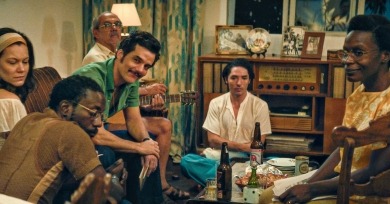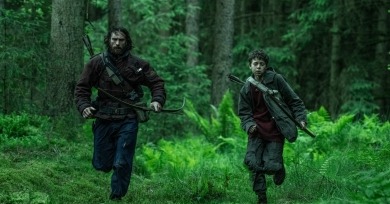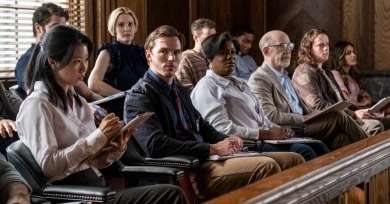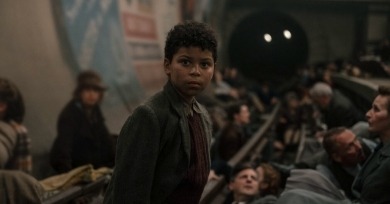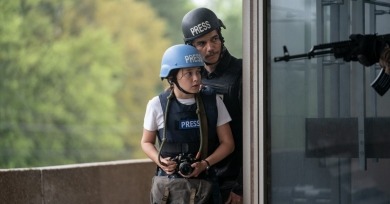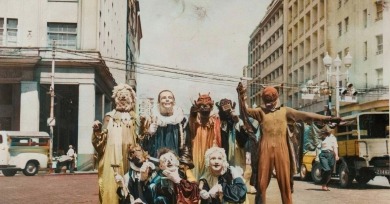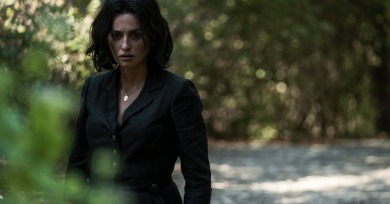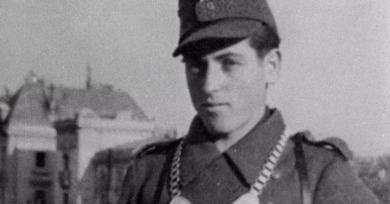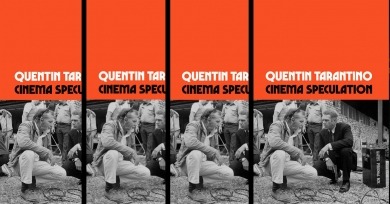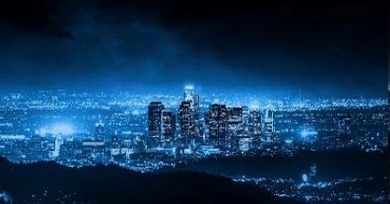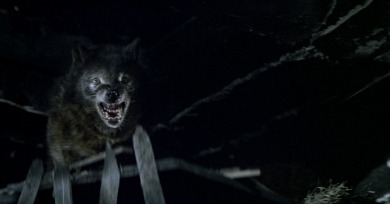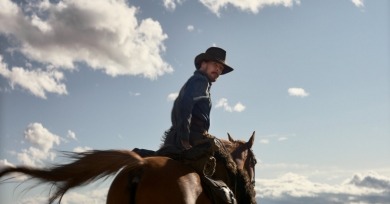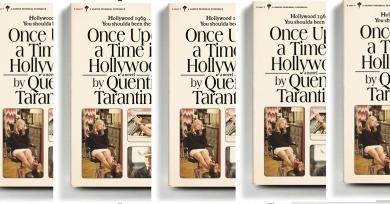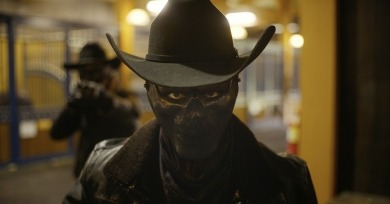Gavin Smith
The Secret Agent is a thriller to be sure, but while it delivers the requisite underlying suspense, it also disperses its genre imperatives, hot-wiring this man-on-the-run vehicle to veer off in unpredictable digressions.
Justly acclaimed for her nonpareil handling of dynamic, kinetic action, Bigelow has now stepped up from crime and mayhem in the streets and war in foreign lands to enter the ultimate arena of high-stakes conflict.
Don’t Let’s Go to the Dogs Tonight is a passion project of the best kind, and not just because it features a part actors would give their right arm to play.
In case you did not see the other two films, 28 Years Later provides a quick refresher. Serving as audience surrogates, a living-room gathering of increasingly anxious children watch Teletubbies while all hell breaks loose outside. Only one of them makes it out alive.
Eastwood has no illusions about the legal system, but at no point does he suggest that it is rotten. In fact, the story he is telling puts its faith in the personal integrity of public officials and the facing of inconvenient facts.
In the wake of the Small Axe cycle, McQueen now sets out to submit British cultural identity to a stress test during a period of maximum crisis.
Understandably the film’s directors, Jesse Moss and Tony Gerber, are not interested in the inherently comic potential of their material, even if they cite Kubrick’s Dr. Strangelove as an influence. After all, people, this is no laughing matter.
The 15-year-old me would have gotten a big kick out of Civil War—but for better or for worse he’s not writing this review.
Villeneuve smartly opts for an open-ended, portentous close, which pointedly foreswears the heroic triumphalism of your run-of-the-mill space opera.
Pictures of Ghosts is as much a meditation on a home, a city, and a stretch of modern history—and how, over time, all three have evolved—as it is a memory-filled tour of a vanished world of movie theaters and other traces of film culture, tinged with a sense of loss.
Exciting and dynamic as the film is, what is most impressive about Ferrari is the finesse and restraint Michael Mann exercises over dramatizing the more intimate facts of Ferrari’s complicated life.
A stunning feat of oral history, interweaving the lucid and at times jaw-dropping testimony of a multitude of eyewitnesses and participants with extensive and eye-opening newsreel footage from French, German, and British archives.
The book just about holds together thanks to its sheer freewheeling enthusiasm and shoot-from-the-hip attitude, dispensing opinions by the yard, almost all of them hyperbolic. And hyperbole is just one of the problems.
The busyness and expansiveness and deft choreography of White Noise do not quite camouflage its superficial engagement with played-out themes (consumerism, better living through chemistry, coming to terms with mortality) located in family life and couples, Baumbach’s perennial territory.
For those of you who can’t get enough of his 1995 film Heat, widely and reasonably regarded as his masterpiece, well, now there’s Heat 2, a gritty, vivid, 468-page second helping that delivers the goods and also goes to surprising new places.
Despite the extensive tampering of its producer, Orion Pictures, Wolfen should be considered one of the most remarkable and visually innovative Hollywood films to be released in 1981.
The viewer may anticipate a contest between Phil and Rose for the boy’s heart and mind, a kind of moral tug-of-war, and Rose’s physical deterioration as her son’s fortitude develops enhances the misdirection. But in the end, it’s Peter’s conception of masculinity, as encapsulated in the film’s opening voiceover, that prevails.
The challenge facing any critical exegesis of this or any other adaptation of Dune is that the world-building novel by Frank Herbert (elaborated upon in five sequels) drops you into a fictional universe so fully imagined that the uninitiated cannot help but be daunted.
The book recycles the screenplay, but alters the structure, expands on certain scenes, drops others, restores scenes that did not make the final cut, and introduces a wealth of material that would not have belonged in the film. It is as much a willfully digressive collection of opinions as it is a work of fiction.
Shot in fall 2019 and originally set for 2020 release, The Forever Purge can’t be taken as a comment on the events of January 6, 2021. All the same, it is a legitimate (and/or opportunistic) ne plus ultra take on the political and social polarization and paranoid atmosphere of the Trump era.
